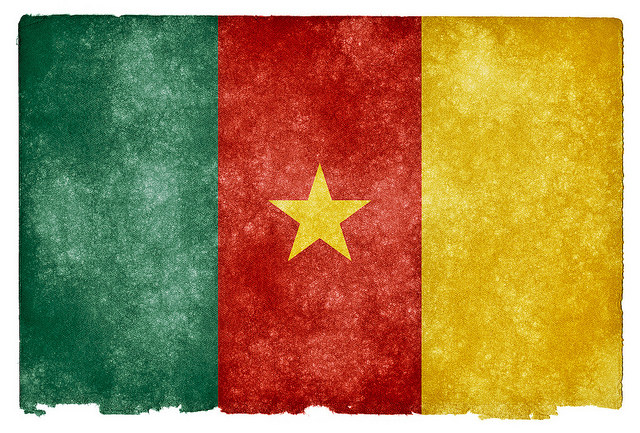This article is part of a series produced for Religion News Service’s parent organization Religion News Foundation with support from the Arcus Foundation and Heinrich Böll Stiftung Southern Africa. It emerged from a November 2017 journalism training workshop in Cape Town, South Africa. Click here to read the original article in French.
YAOUNDE, Cameroon – Jaurès, a young Catholic man “born into a very godly family,” always feels bad when he goes to church.
“The priest says that men who sleep with other men are contradicting the will of God. He speaks of curses and hell. It disturbs me. I sometimes contemplate suicide,” said Jaurès, whose last name has been withheld to protect his identity.
Jaurès, 29, is gay. He was an altar boy at his church in Douala, the economic capital of Cameroon, for almost 10 years but never dared to discuss his sexuality in the parish.
For the past year, Jaurés has been supervised by a psychologist from Humanity First, a human rights NGO based in Yaoundé, Cameroon’s administrative capital. Despite this psychological support, Jaurès said he struggles to find the “right balance” between his religious beliefs and his sexual orientation.
Like Jaurès, many LGBTQ people in Cameroon have trouble reconciling their faith and sexuality. Nickel Liwandi, executive director of the Cameroonian Foundation for AIDS, attributes this to religious leaders’ hardline speech and Cameroonian law, which represses intimate relationships between people of the same sex.
Cameroon is a secular country in which many religions live side by side. Of the country’s 23 million people, nearly 69 percent are Christian (mostly Catholic and Protestant), 21 percent are Muslim and 6 percent are animists.
Cameroonian law prohibits same-sex sexual activity. Article 347 of the country’s penal code “punishes, with imprisonment of six months to five years and a fine of 20,000 Central African CFA francs (30 Euros) to 200,000 CFA francs (300 Euros), anyone who has sex with someone of the same sex.”
Some local newspapers publish “whistleblowing” lists of people alleged to be gay, and most community leaders, including religious leaders, publicly condemn homosexuality.
The Catholic Church, Cameroon’s largest Christian denomination, produced in 2013 an official Declaration of the Bishops of Cameroon on Abortion, Homosexuality, Incest and Sexual Abuse of Minors in which they called on “all believers and people of good will to reject homosexuality and the so-called ‘gay marriages’ and to accompany those who are inclined towards homosexuality and homosexuals by means of prayer, spiritual follow-up and compassion, in view of their conversion.”
This same statement added: “homosexuality is not a human right but a disposition that seriously harms humanity because it is not based on any value intrinsic to human beings; ‘it is an abomination’.”
Cameroon’s Muslim communities have not issued official joint declarations on homosexuality, but some imams have addressed the subject during important holidays and celebrations. In 2016, during a sermon for Eid al-Adha, Sheikh Mubarak Mbombo Ibrahim, the national president of Cameroon’s Conference of Imams, declared that homosexuality is a “perversion” and a “degrading practice.”
Recently, several NGOs, including Humanity First Cameroon, have started initiatives to raise awareness of LGBTQ issues among religious leaders.
“We want to act with opinion leaders to address homophobic discourse. These leaders have a great influence on the lives of those who listen to them. Sometimes they are not aware of the damage their speech can cause,” said Yves Tonkeu, human rights officer at Humanity First Cameroon.
Tonkeu warned that religious intolerance can exacerbate personality disorders among LGBTQ people.
“Religious intolerance diminishes an individual’s self-esteem and can instill in believers the feeling that they are subhuman, lost, abnormal, creatures of the devil. It’s very disturbing for some,” he said.
Humanity First Cameroon organizes regular meetings with religious leaders of the country’s main denominations to discuss the consequences of their speech.
Representatives from Humanity First Cameroon and other NGOs working in this space, including Alternatives Cameroon, said they appreciate the fact that religious leaders are beginning to interact with men who have sex with men and lesbians, even if their discourse remains mostly unchanged.
“The change will be gradual. In the meantime, we are working to strengthen the minds of gay people and restore their self-esteem,” said Paul Thierry Mbida, a member of Humanity First Cameroon.
Others adapt as they can. Guy-Martial, a member of a Protestant church in Cameroon whose last name has been withheld to protect his identity, says he has developed a direct relationship with God.
“One day, I went to worship. During the preaching, I had the impression that the priest was addressing me directly. He spoke of people turning away from God’s face by engaging in unnatural practices. I was very uncomfortable and was fed up with his multiple reproaches. To avoid this discomfort, I do not go to church anymore. I pray at home. I speak directly to God. In any case, faith is in the heart and not in buildings,” Guy-Martial said.
Anne Mireille Nzouankeu is a journalist in Yaoundé.
Brian Pellot edited and translated this article. To read the original French version, click here.





